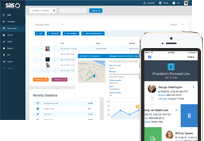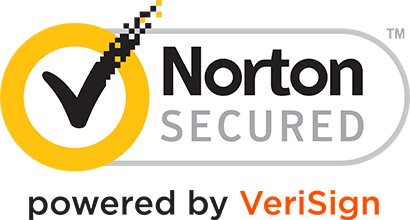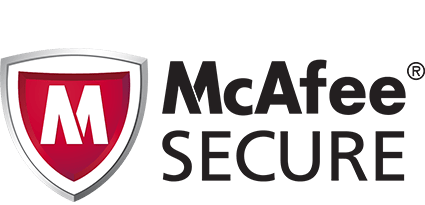- Log In
- Support
- Company
- Contact Us
- Live answers @ 1-888-532-4794
7 Tips When Using an Answering Service For Your Charity Telethon

Remember the Jerry Lewis Telethon? If you’re under 30, you probably think I just made that name up – but I didn’t. The Jerry Lewis Telethon was an annual television event, hosted by Jerry Lewis, that raised money for the Muscular Dystrophy Association. Celebrities would pop in to say hi, people would perform, and call center operators would answer telephone calls to take donations. It was a well oiled fundraising machine. While the Jerry Lewis Telethon was the pinnacle of fundraising back in the day – today, tons of other charities have yearly telethons, or pledge drives, to raise money for their cause. And when you have those phones ringing off the hook with pledges, who you gonna call to answer them? You’re going to hire an answering service!
At SAS, we’re experienced at taking telephone donations for telethons, however, answering calls for telethons is really not an easy task! One of the biggest challenges is staffing. It’s always difficult to staff the call center properly when there’s no past traffic pattern to base staffing estimates on. It can also be a challenge to develop a script without testing it out on real calls. The problem with telethons is that calls come in all at once over a few days (or few hour) period, so there is no real feedback cycle. You either get it right from the start, or fail. The nature of the charity telethon means the script needs to be perfect from the jump or you’re risking missing donations.
If your non-profit is hosting an annual charity pledge drive or holiday fundraiser, and you’re considering hiring a live answering service to help manage the phone traffic, we’ve complied 7 must do tips to ensure a successful experience.
#1: Add FAQs
If people are donating money, they’re bound to have some questions about where their money is going. To help with that, it’s always a good idea to add some Frequently Asked Questions (FAQs) to make sure the virtual receptionists handling your calls are armed with answers to callers questions. If callers have questions regarding what the campaign is for, or where they’re sending their money to, it doesn’t look good for your cause if the people they are speaking with aren’t able to answer. So, it’s important to get your answering service up to speed. Some great examples of FAQs for telethons include:
- What is the campaign all about?
- How did it get started?
- Can I donate online? If so, what is the website?
- Can I make a one time donation or does it have to be monthly?
- Is there a minimum to how much I can donate?
- Where does the money go?
- Am I able to cancel my monthly donation at any time?
- What are the payment methods?
- Can I use Paypal or an eCheck or does it have to be a credit card?
- Is my donation tax deductible?
- Are there incentives included with donation levels? If so, how and when will I receive my gift?
Pro tip: If you run different telethons, you’ll want to make sure to update your FAQs as the campaigns change.
#2: Let Your Callers Know They’re Speaking with an Answering Service
A great tip for anyone using an answering service to field calls for their pledge drive is to let the callers know upfront that they are speaking with a service. If the callers think they are talking to someone from the organization, it may tempt them to ask a bunch of questions that the reps won’t be able to answer. Sure, you can add FAQs to help them out but it’d be almost impossible to add every little piece of information.
The good news is, callers are generally receptive to the fact that they aren’t speaking directly with someone at the organization. It’s like when you call PETA to donate and get Chris Pratt on the phone. You know he’s not going to know who the charities board members are, but he will absolutely know how to take your donation! We recommend having the virtual receptionists say something like: “Thank you for calling the Animal Welfare Society’s annual telethon’s answering service, can I help you place a donation?” That way you are letting callers know right away who they are speaking with. When callers know they are speaking with an answering service, they are less likely to ask those in depth questions that may leave the agent saying “um…”
And, for anyone that has questions outside of the scope of the script, we recommend adding a path in your script for questions or escalations. That way, if someone isn’t donating on the spot and they need more data the answering service agent can’t provide, the receptionist can just pass a message to your charity.
#3: Implement a Simple Web Form
Like any call center interaction, you always want the receptionists to get on and off the phone quickly so that they can handle as many calls as possible. However, if your website is complex or you’re having the receptionists fill out a long web form, your calls are going to be anything but short. And if the answering service is handling a million and a half calls, you want to make sure the agents aren’t tied up for very long on any call. If your web form is simple and straight to the point, your callers will have a positive experience and may even decide to donate more. An example of a simple web form would be:
- Name
- Phone Number
- Email Address
- Donation Amount
- Is it a monthly donation or a 1 time donation?
- How you heard about the event (optional)
- Billing Information
#4: Tweak the Script Before the Event
Getting callers on and off the phone as quickly as possible is crucial to maximizing your donations. In addition to implementing a simple web form, you also want to make sure the script itself is fool proof. And, you definitely don’t want to wait until you start getting calls to realize there is an issue with your script. We suggest placing test calls prior to the event so that you can locate any hiccups and get them ironed out quickly. Once you have the script perfected, you can rest easy knowing that your callers will have a smooth and simple interaction with your answering service.
Pro tip: Look for a live answering service that offers a free trial period, so that you can place test calls and make adjustments without getting charged.
#5: Save Your Call Script
When you hire an answering service to handle calls for your pledge drive, there are some questions you should ask before hand. For example, if you close the account after your telethon has ended, will your information be wiped or will it stay saved? If it does stay saved, will it stay saved indefinitely or will it be cleared out after a certain period of time? Asking questions like this will help you determine which answering service is the best fit for you, especially if you plan to use them for future pledge drives.
If you utilize a service that does not save your account information, you may waste a lot of time each year re-building your account from scratch, only to have it wiped again. To avoid this, you could look for an answering service that will not wipe your information, or you could inquire about their lowest plan to keep the service active until the next telethon airs. Most telephone answering services will have a low volume or economy plan which has no usage allowance and just serves to maintain the programming. However, some services will keep your information saved for a year or more when you cancel which makes for an easy reactivation process.
#6: Purchase Your Own Toll Free Number
While many answering service offer toll free numbers at no extra cost, it’s a good idea to purchase your own. That way if you do happen to leave service after your telethon airs, you won’t lose that number. When you aren’t advertising your donation number, you can route calls back to your office and forward them again to the service once you have a new pledge drive. However, if you wanted to keep the service active year round to use for emergencies, you could forward your toll free number to the service whenever is convenient for you.
Pro tip: Having your own toll free number will also allow you to advertise that number with no restrictions. While you are able to advertise numbers that answering services give you, you are usually unable to take those numbers with you should you decide to leave service. So, you could waste a lot of money by putting that number on TV or billboards if you don’t actually own it.
#7: Alert your Answering Service of High Volume
The last thing you want when running a telethon is for your callers to wait on hold. So, it’s really important that you let your answering service know beforehand that you will be sending a lot of volume their way, that way they can prepare for the high volume and staff up accordingly. Otherwise, your calls are going to get backed up, and your callers are going to wind up disconnecting, which means less donations for your charity. In addition, if you run an annual telethon, it may prevent them from calling back next year. So, let your answering service know of the event in advance and then sit back and watch the donations roll in.
Pro tip: Send a notification to your service at least 2 weeks in advance so they have ample time to prepare.
Categories
- Advice (32)
- Answering Service 101 (18)
- Best Practices (10)
- Call Center Jobs (6)
- Call Center Software (20)
- Comparison (2)
- Customer Service (30)
- Funny (31)
- Holidays (19)
- Industry Hacks (19)
- Infographics (53)
- International (1)
- Medical (8)
- News (12)
- Phone Etiquette (2)
- Phones (14)
- Pricing (8)
- Quizzes (3)
- Receptionist (11)
- SAS Products (29)
- Scripting (4)
- Services (5)
- Small Business (25)
- Starting Up (7)
- Tips and Tricks (19)
- Uncategorized (1)
- Videos (19)
- Workplace (6)
Recently writen
- Call Center Script Best Practices: Advanced Script Block Tips to Optimize Your Answering Service
- January 2025 Release Notes – Adjustments to Call Details Timeline, New Scripting Updates, Live Transcription, and more!
- April 2024 Release Notes – Voicemail Greetings, Ability to Access Websites With a Username and Password, and more!
- March 2024 Release Notes – New Add-On, Settings Revamp, and more!
Follow Us
How about a demo?
We'll show you how our web portal works and answer any questions you have about SAS.
Schedule a demo







